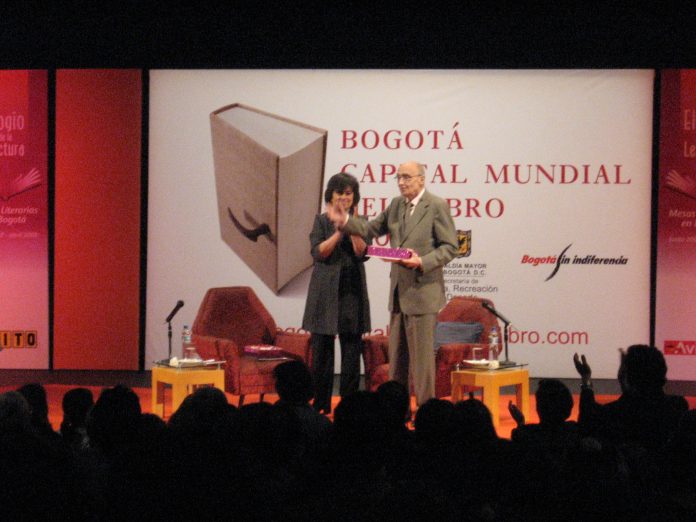“Unemployed again and bearing in mind the political situation we were undergoing, without the faintest possibility of finding a job, I decided to devote myself to literature: it was about time to find out what I was worth as a writer.” Lisbon, 1976. 45 years down the line, over two million copies of Saramago’s books have been sold only in Portugal; his work has been translated into 25 languages so far.
If he were alive today, José Saramago would have celebrated his 99th birthday last November 16th. Born in small Azinhaga do Ribatejo, aged two he moved to Lisbon, where he spent most of his life. Forced by a stern family situation to quit grammar school in favour of technical studies, he changed professions several times – car mechanic, civil servant, editor, translator, assistant editor of Diário de Notícias, was even unemployed at a stage for political reasons. He would attend the local library in his free time to quench his thirst for literature, which for many years he had to set aside. In 1947 his first book, a novel, the first of many.
“If you can see, look. If you can look, observe” (Blindness)
Due to his “parables sustained by imagination, compassion and irony [with which he] continually enables us once again to apprehend an elusory reality”, Saramago was awarded the Nobel Prize for Literature in 1998. He was an atheist, believing only love could help humankind improve its condition, which he shows great empathy for. Identity and isolation are recurring themes in this work, with characters showing their struggles and need to connect with one another and bond as a community, finding meaning outside the political and economic structures. His writing is complex yet elegant, witty and experimental: in “Blindness” (Ensaio Sobre a Cegueira – also brought to the big screen along with other novels by the author) he makes no use of proper nouns, the sentences follow one another often using only commas as punctuation, dialogues flow merging with the narrator’s voice.
“Even death, faced with the option of death or life, she would choose life.” (Death with Interruptions – As Intermitências da Morte)
Saramago died in 2010 in Lanzarote, where he had chosen to exile a few years earlier with his Spanish wife and translator due to his work being censored by a conservative government, which deemed it offensive to the catholic community. José Saramago created the José Saramago Foundation in 2007 at Casa dos Bicos, in Lisbon: his goal was to defend and promote the Universal Declaration of Human Rights and to protect the environment. Through his work and foundation, Saramago played an essential role in promoting culture in Portugal as well as disseminating the Portuguese language and culture all over the world.
Throughout the year until November 2022, a whole programme of events dedicated to José Saramago is scheduled in both Portugal and other countries. “Reading is probably another way of being in a place” he wrote in “The Double” (O Homem Duplicado): why not dive into one of his novels while you plan your next Portuguese stay?


